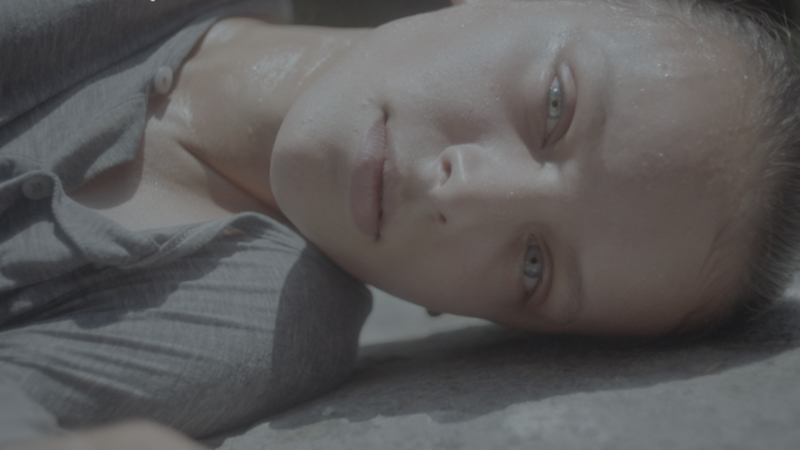Review: Ecstasy
The weight of the world.

In her dreamlike first feature, Brazilian director Moara Passonni uses action—especially the noisy street demos of her country's recent political past—as background. The movie's unswerving focus is a quiet young girl named Clara, who on the cusp of puberty is sinking into extreme anorexia. "This week Manu got her period and she cried her heart out," Clara says of a classmate early on. "I can't imagine myself with breasts." Why does no one notice what's happening to this person? "My body is like a scream," she says
Passoni's story, set in São Paulo around the end of the 1980s, is autobiographical. (The director herself was once seriously anorexic but lived to tell.) Clara's mother is a former nun impelled toward social action in the backwash of the country's 20-year military dictatorship. She runs for the National Congress and wins, and soon moves with Clara to the country's sleekly soulless capital of Brasilia. ("How could this place be home?" Clara wonders, taking in the city's cold concrete vistas.)
Adolescence turns Clara increasingly inward. Her mother, seeing her daughter shunned after kissing another girl on the mouth, enrolls her in ballet school, where the importance of body weight looms large and Clara begins surreptitiously dumping food rather than eating it. She seems weird to the other girls and remains friendless.
By the age of 15, Clara weighs 64 pounds and has stopped menstruating. Doctors put her on lithium, then administer a "light" course of electro-shock, but nothing reels her back from the edge of impending collapse. Attempts at force-feeding only puncture her intestines. "If I have a problem," she says, "it's the less I eat, the more energy I have." This regimen keeps her in a constant state of counterfeit ecstasy to which she desperately adheres. Nothing dispels her loneliness, though. "I'm making a cage of bones to keep my heart inside," she says. A doctor tells her, "If you don't eat, you'll die." Clara happily signs a waiver to get out of the hospital, so she can continue slowly killing herself without outside interference.
Director Passoni and her cinematographer, Janice D'Avila, wreathe the story in a retrospective haze that gently draws us into this melancholy tale. And the actors who play Clara at different ages give unusually affecting performances. (They include Victoria Maranho, Gigi Paladino, Alice Valares, and Susana Prizendt.) The silent nightmare of anorexia is straightforwardly portrayed and not sensationalized. We see Clara wordlessly contemplating her naked body as if it were a hostile foreign land. We watch as she fantasizes trimming "fat" off her abdomen with a pair of scissors, and we look on in alarm at a photo parade of real-life anorexic women, whose bones serve mainly as armatures for the bags of skin their bodies have become.
Even within Clara's cramped world of morbid self-deprivation, life's traditional distractions still beckon. There's a boy, and a nightclub, and hints of sex and love. But Clara won't be drawn in too deep. "The problem with allowing myself pleasure," she says, "is that it creates desire." What she most wants, we're told, is "to be 100 percent autonomous, like a statue."
Ecstasy will be streaming as part of the MoMA Doc festival from March 28 through April 2. You have to become a member, though. The film doesn't have U.S. distribution yet, but keep an eye out.


Show Comments (16)